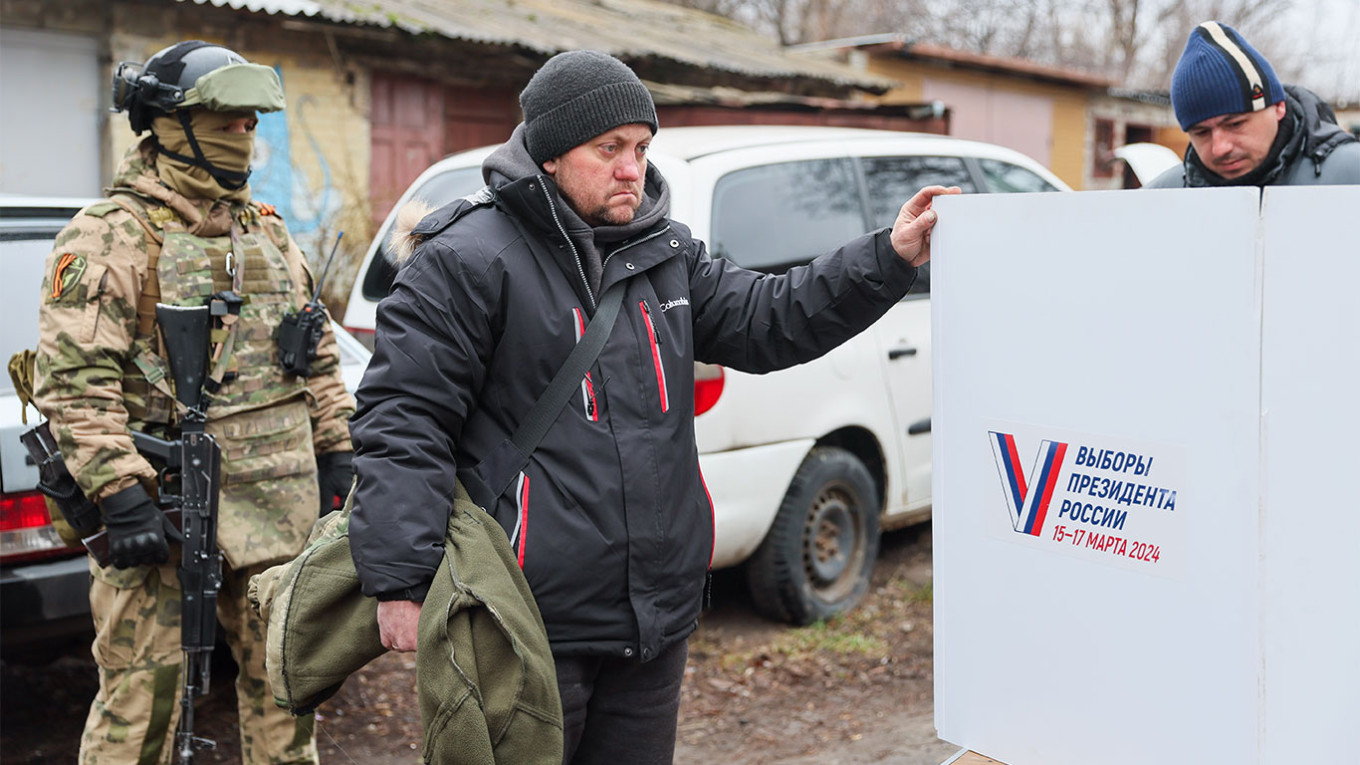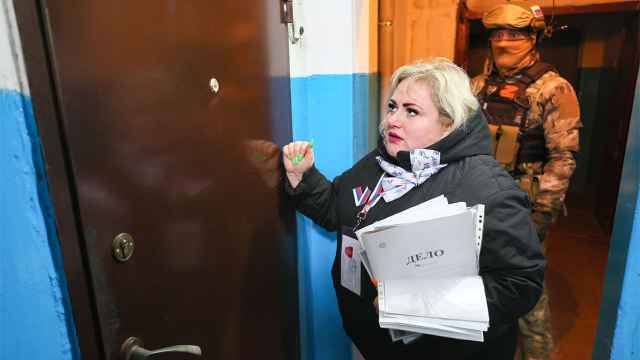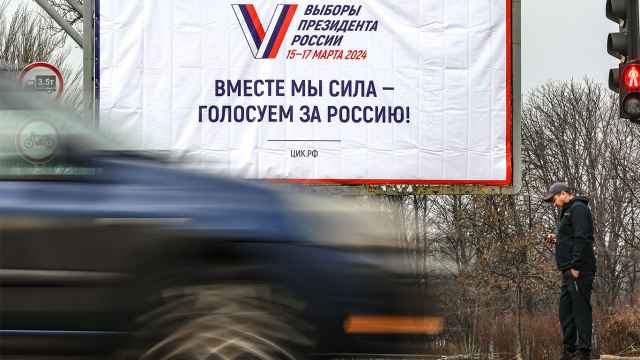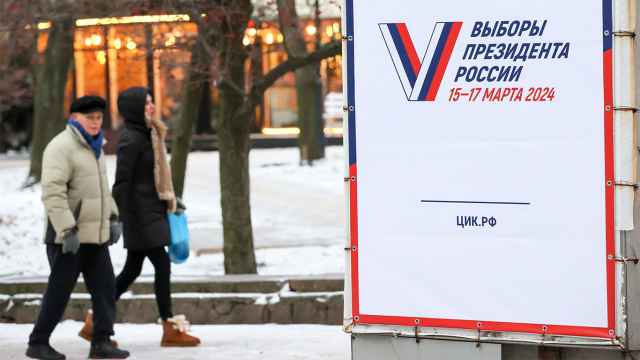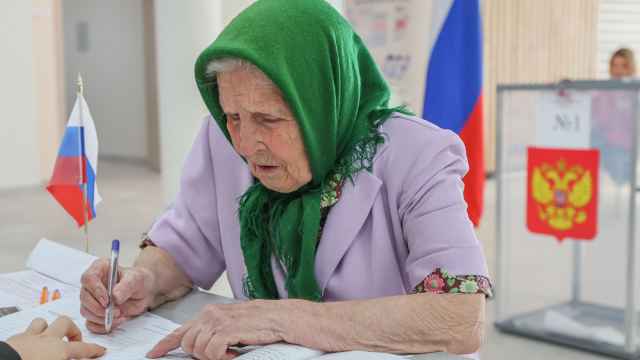Russia has opened polling stations for the 2024 presidential election in the Moscow-occupied regions of Ukraine despite ongoing fighting and the regions being internationally recognized as part of Ukraine.
Moscow claimed to have annexed Ukraine’s Donetsk, Luhansk, Kherson and Zaporizhzhia regions following 2022 referendums that Ukraine and the West described as a sham. It previously annexed the Crimean peninsula in 2014.
Experts call the voting in these regions “a loyalty check” for their Kremlin-backed authorities more than two years into Russia’s invasion of Ukraine.
With the war raging nearby and poor integration into the Russian electoral system, the four regions are effectively “black holes” with no access for independent experts or election observers to monitor the voting, experts told The Moscow Times.
Kyiv has called the Russian election illegal and void.
“This is a field of ‘miracles’,” Konstantin Skorkin, a Britain-based political expert specializing in Ukrainian politics, told The Moscow Times.
“They [local pro-Kremlin authorities] can do whatever they want, because despite the annexation and the statement that these are the Russian territories, de facto there is no legislation.”
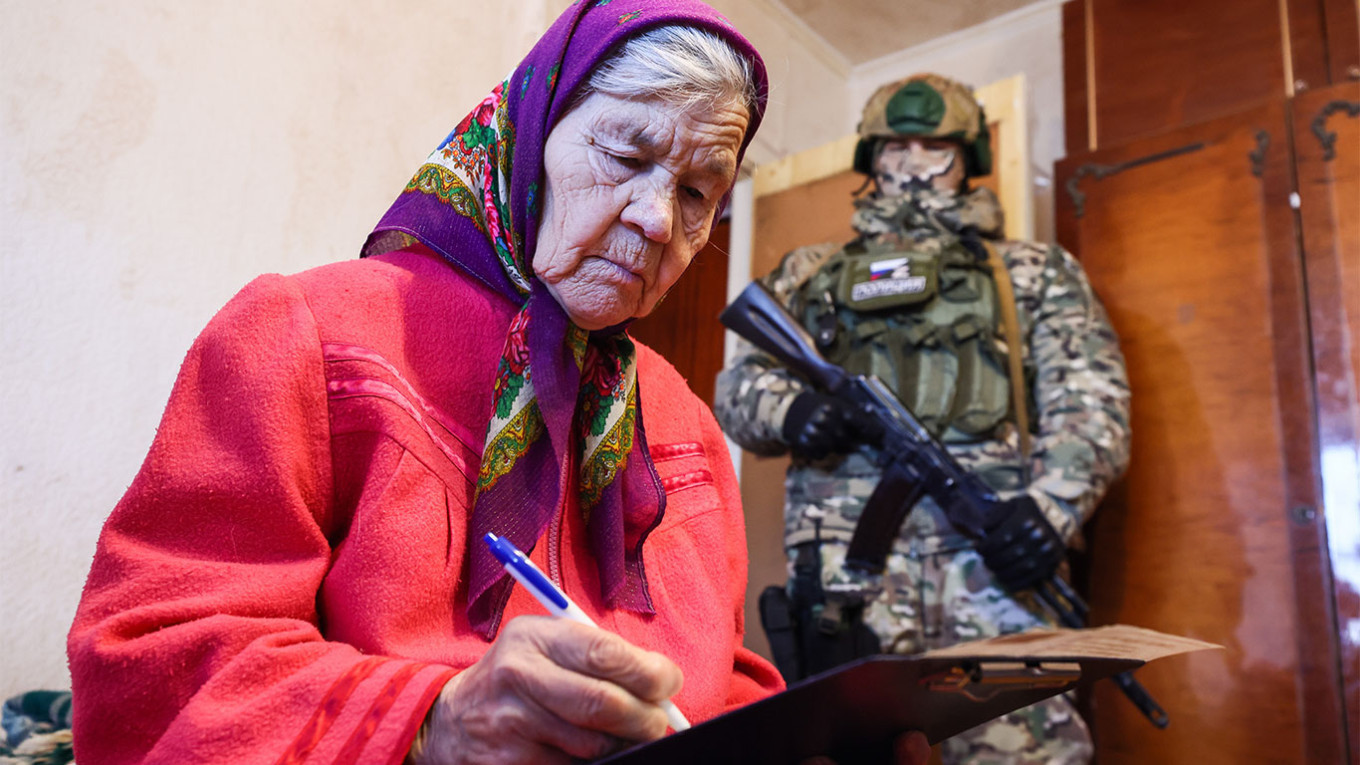
President Vladimir Putin, who has ruled the country for more than two decades, is expected to win re-election in the March 15-17 vote, allowing him to stay in power until at least 2030.
Running against him are Vladislav Davankov of the New People party, Leonid Slutsky of the Liberal Democratic Party (LDPR) and Nikolai Kharitonov of the Communist Party. Though they are campaigning on different platforms, all are widely seen as backed by the Kremlin.
“There is no doubt that the authorities want to show that Putin wins with great results to demonstrate the unity of the population,” Skorkin said. “I think that the same standards have been established for the heads of these occupation administrations.”
“For the occupied territories, taking part in the election is a loyalty check,” he added.
Besides showing “unity,” according to the U.S.-based Institute for the Study of War, the Russian authorities also intend to use the election to justify Russia’s actions in Ukraine — meaning the occupied territories have a key role to play.
“The Kremlin and Russian occupation officials intend to falsify votes in support of Russian President Vladimir Putin and fabricate a large voter turnout in an attempt to legitimize Russia’s occupation of Ukraine to the international community,” the think tank said.
The Kremlin appears to have taken several steps to increase turnout in the four annexed regions.
While the election is taking place on March 15-17, early voting began in the annexed territories last month in an apparent attempt to boost turnout.
In the annexed Donetsk and Zaporizhzhia regions, the early voting turnout was 57.84% and 45% respectively.
However, the number of voters in these territories is questionable.
According to Russia's Central Election Commission (CEC), there are 4.5 million registered voters in Donetsk, Luhansk, Kherson and Zaporizhzhia.
Stanislav Andreychuk, the co-chair of Russia’s main independent election watchdog Golos, said “there are serious doubts” regarding this number.
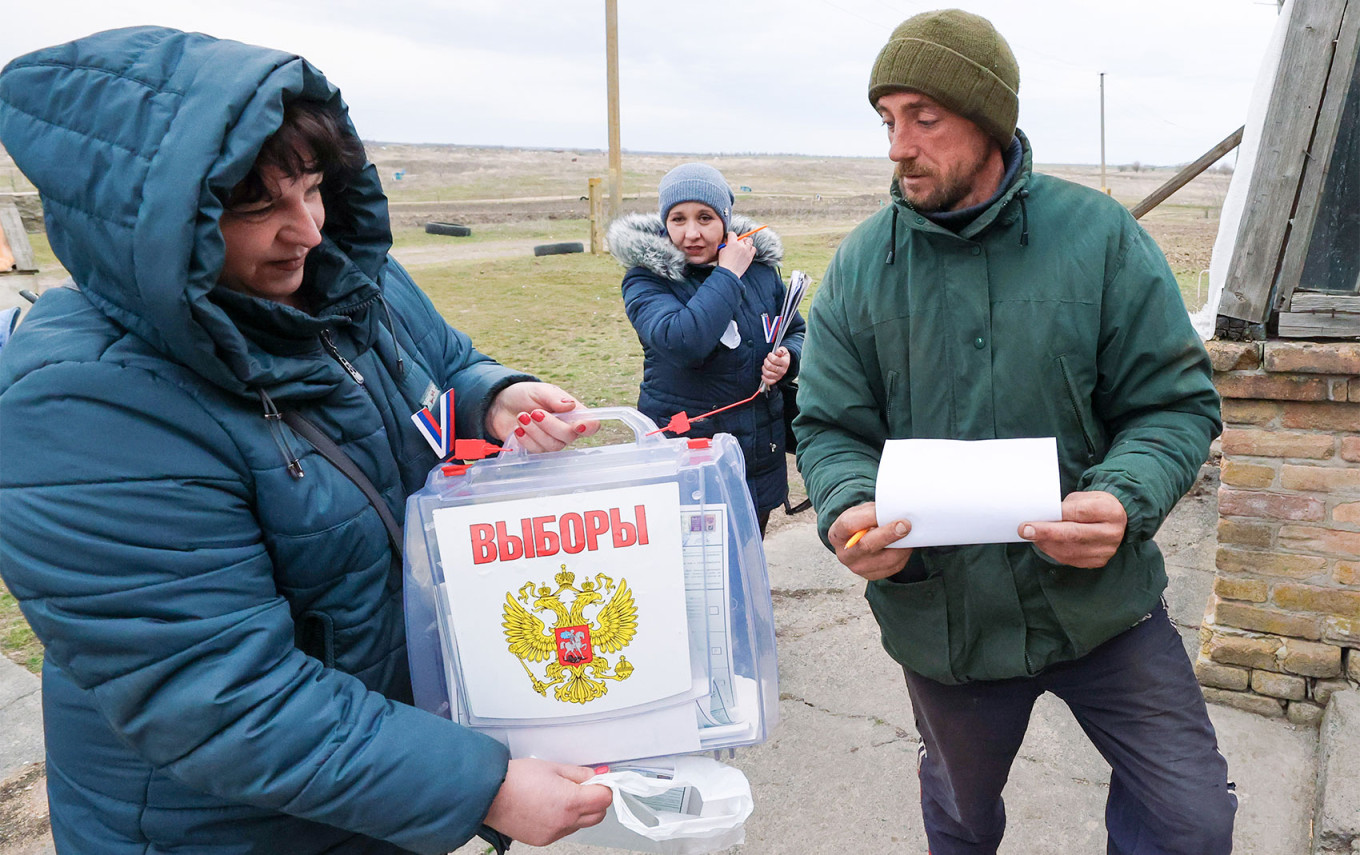
Migration from the regions began with the start of the war in Donetsk and Luhansk in 2014 and intensified with the full-scale invasion of Ukraine. Today, none of the four annexed territories are fully controlled by the Russian Army.
“It is absolutely unclear how many people actually live there and how many can participate in voting,” Skorkin said.
Another controversial point involves voters’ documents, and whether Russia will count votes cast by people who are not its citizens.
The CEC is allowing Ukrainian passport holders to vote if they “live in the [annexed regions] permanently, but have not yet been able to obtain a Russian passport or have lost it.”
As of September 2023, more than 2.8 million residents of the four annexed regions have received Russian passports, according to Russia's Interior Ministry. Some 3.2 million were expected to receive Russian documents by the start of 2024.
Voters are also not obliged to vote at polling stations. In the Zaporizhzhia region, members of local election commissions said they would go door to door with voting boxes and ballots.
Footage from the occupied regions shows people voting and signing their ballots on top of cars used as mobile polling stations as well as members of local election commissions accompanied by armed servicemen in fatigues.
Ukraine has promised that its citizens would not face legal responsibility for taking part in the election, saying that local residents were being forced to vote.
Meanwhile, experts said the way that voting is organized allows the Kremlin to alter the results after the fact.
“There is no [independent] observation, the [election] commissions were formed without party representatives, and you can vote not only with a Russian passport but with an expanded list of documents,” Andreychuk said.
“That is an ideal atmosphere for fraud.”
A Message from The Moscow Times:
Dear readers,
We are facing unprecedented challenges. Russia's Prosecutor General's Office has designated The Moscow Times as an "undesirable" organization, criminalizing our work and putting our staff at risk of prosecution. This follows our earlier unjust labeling as a "foreign agent."
These actions are direct attempts to silence independent journalism in Russia. The authorities claim our work "discredits the decisions of the Russian leadership." We see things differently: we strive to provide accurate, unbiased reporting on Russia.
We, the journalists of The Moscow Times, refuse to be silenced. But to continue our work, we need your help.
Your support, no matter how small, makes a world of difference. If you can, please support us monthly starting from just $2. It's quick to set up, and every contribution makes a significant impact.
By supporting The Moscow Times, you're defending open, independent journalism in the face of repression. Thank you for standing with us.
Remind me later.



